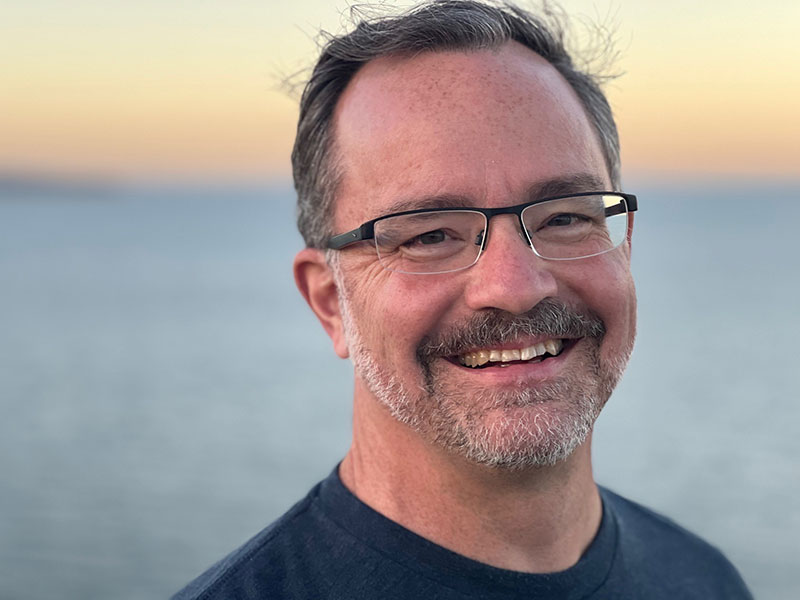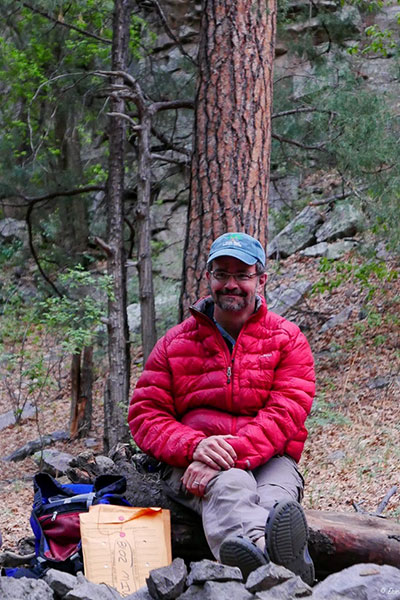News3 Minute ReadJun | 10 | 2024
Into the Wild: Space Medicine and What’s Next

Chief, Division of Wilderness Medicine
Director, MGH Wilderness Medicine Fellowship
Founding Chief of MGH SPEAR (Space, Ecological, Arctic, and Resource-limited) MED
N. Stuart Harris, MD, MFA, could be described as the man people most want to sit next to at a dinner party. The stories he tells are varied: Harris is an MGH Emergency Department physician who holds not just a medical degree, but a master’s in Fine Art. He holds a black belt in judo, spent time as a commercial fisherman in Alaska, and was the bronze medalist in U.S. Whitewater Open Canoe Nationals. Harris is now looking toward the next frontier as founder of MGH SPEAR MED: medicine practiced in Space, Ecological, Arctic and Resource-limited environments, a division of the MGH Emergency Department. Harris recently spoke about the program as part of the MGH Russell Museum’s lecture series.
Q. How did SPEAR MED begin?
A. SPEAR MED began with our wilderness medicine fellowship in 2005, we then created our division in 2010. Wilderness medicine is the provision of resource-limited medicine under austere conditions. The program trains physicians in the fundamentals of good medical care: listening to your patient, doing a thorough exam, and using your brain – and then demands they do so under conditions where most doctors would have difficulty even caring for themselves. Learning skills to care for sick patients when resources are scarce, makes you a better doctor for when they are not.
In 2022, in collaboration with the Baylor College of Medicine in Houston, we created the first graduate level approved space fellowship program. In each fellowship, we prepare clinicians for the unparalleled challenges they would face on the remote parts of Earth and/or space.
Q. Why is space medicine necessary?
A. The idea for space medicine came from a cohort of people – many of whom had been employed by NASA – in search of the best way to prepare clinicians to provide care under the demanding constraints of space travel. NASA is extremely discerning in who gets to go to space, which has helped mitigate risk to the people travelling. Now that private companies have revolutionized the ease of getting to space which allows a broader group of people to travel, prevention remains critical but that alone it is not sufficient. We need the tools and training to diagnose and treat astronauts where they are. Space medicine is the next step to providing expert care where the patient is in need.

Q. What does the space medicine fellowship entail?
A. In the space fellowship, we think about what we can bring into the solar system, considering space and weight limitations. Thinking outside the box is mandatory; when travelling in space, we can no longer count on the basic Earth systems that our health has evolved to thrive in. There is potential for extreme temperature fluctuations and massive amounts of radiation. Even maintenance of safe atmospheric conditions and food and water availability are all profound risks. Physicians enrolled in the two-year program study all of this and focus on how to maintain health far from Earth. The program also includes training in wilderness and rescue medicine, a rotation in NASA’s medical research branch, as well as prolonged training rotations at SpaceX and Vast Space. These companies design, manufacture, and operate rockets and spacecraft. There, fellows spend months learning operational expertise and contributing to advancing commercial space flight innovation.
Q. What’s next in space medicine?
A. I think within the next 15 to 20 years, we may send people to Mars. Not only does it take a long time to get there, but there's no turning around once you get going. This poses unique hazards, and astronauts will need specialists who are expertly trained in the demands of space travel and remote care. Due to this, I see space medicine evolving from an emergency medicine-based specialty right now to a multi-specialty team in the future.
Right now, Boston is the frontier for advances in medical care and the creation of a new knowledge-based space medicine economy. We are collaborating with the full breath of the MGB teaching hospitals, Harvard, MIT, and a rich network of biotech, finance, and government experts. We have the enthusiastic support of the leading commercial spaceflight companies. Our team at MGH SPEAR MED is making history. We are building the team to beat and hiring the best talent on the planet, but it is a race. Other states and medical centers see the promise as well and are investing heavily, but with the talent we have in Boston, there is no reason we shouldn't be leading this effort into the next several decades.
Q. Any last thoughts?
A. Wilderness and space medicine encourages us to think broadly about what events outside the hospital can teach us; getting outside the box brings perspective. Can’t get more outside the box then when you’re thinking about being in space! Every day at MGH through SPEAR MED, I’m surrounded by some of the brightest, most curious, entrepreneurial, and hard-working people on the planet. They are collegial and daring. Together we can accomplish remarkable things, and the ability of our academic medical center to bring all these people together is extraordinary. I appreciate it very much.
